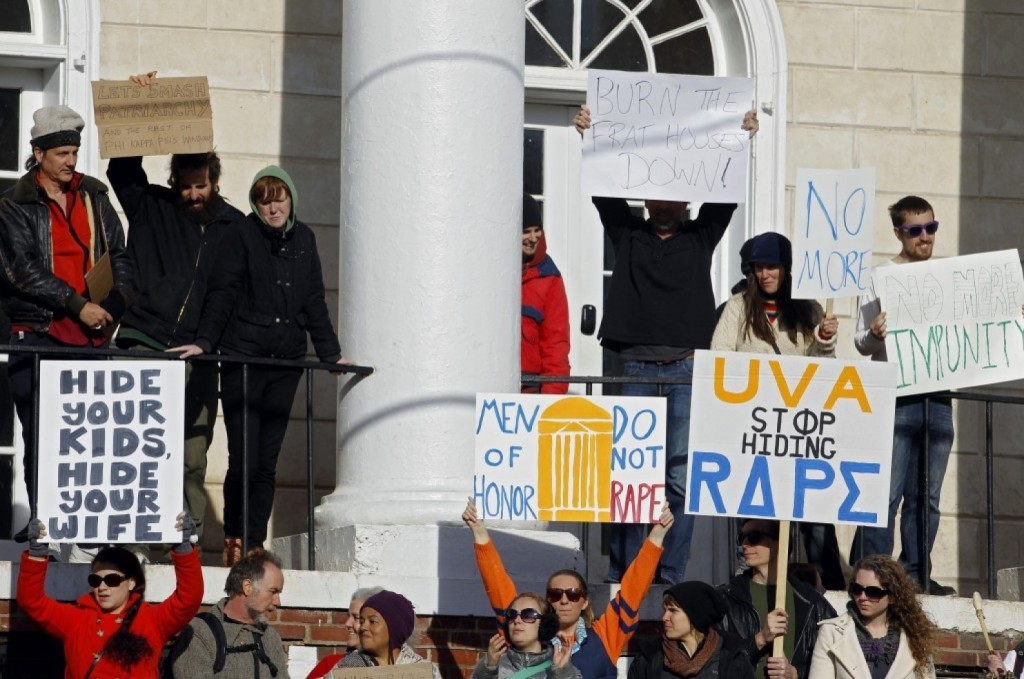So why did a rape culture activist target a particular fraternity at the University of Virginia? Even the Washington Post sees something Phishy about it:
The story and Erdely’s comments about it, moreover, suggest an effort to produce impact journalism. While media critics on the right and the left cry about media bias in just about every news cycle, the complaints generally amount to nothing but ideological posturing. There are few things like a good media-bias claim to distract from a substantive conversation.
In the case, of Erdely’s piece, however, there’s ample evidence of poisonous biases that landed Rolling Stone in what should be an existential crisis. It starts with this business about choosing just the “right” school for the story. What is that all about? In his first, important piece on this story, the Washington Post’s Paul Farhi described the author’s thought process:
So, for six weeks starting in June, Erdely interviewed students from across the country. She talked to people at Harvard, Yale, Princeton and her alma mater, the University of Pennsylvania. None of those schools felt quite right. But one did: the University of Virginia, a public school, Southern and genteel, brimming with what Erdely calls “super-smart kids” and steeped in the legacy of its founder, Thomas Jefferson.
A perfect place, in other words, to set a story about a gang rape.
Observe how Erdely responded to a question about the accused parties in Jackie’s alleged gang rape. In that Slate podcast, when asked who these people were, she responded, “I don’t want to say much about them as individuals but I’ll just say that this particular fraternity, Phi Kappa Psi — it’s really emblematic in a lot of ways of sort of like elitist fraternity culture. It’s considered to be a kind of top-tier fraternity at University of Virginia…It’s considered to be a really high-ranking fraternity, in part because they’re just so incredibly wealthy. Their alumni are very influential, you know, they’re on Wall Street, they’re in politics.”
The next time Erdely writes a big story, she’ll have to do a better job of camouflaging her proclivity to stereotype. Here, she refuses to evaluate the alleged gang rapists as individuals, instead opting to fold them into the caricature of the “elitist fraternity culture,” and all its delicious implications. Of course, one of the reasons she didn’t describe the accused is that she never reached out to them.
There’s a simpler answer to the question of how she chose her target. The author of the original “story” went to Penn. She may not know Greek, but she probably knows Greek letters. So she knows how to identify Phuckups from a mile away.
-
When did Rolling Stone become a source of news? It was always an underground press. I can’t believe they are taken seriously.
Once again, the media leaps before it looks and causes a great deal of damage. Thanks for sharing. Great post.
Comments are now closed.


1 comment